Co-design learning and leadership partnership
Charles Darwin University (CDU) is committed to involving staff, students and external partners in the collaborative development of curricula, teaching and learning. Since 2021, CDU has partnered with Dr Emma Blomkamp to deliver an innovative multi-year professional learning program focused on building co-design capabilities, leadership coaching, and related scholarly activities.
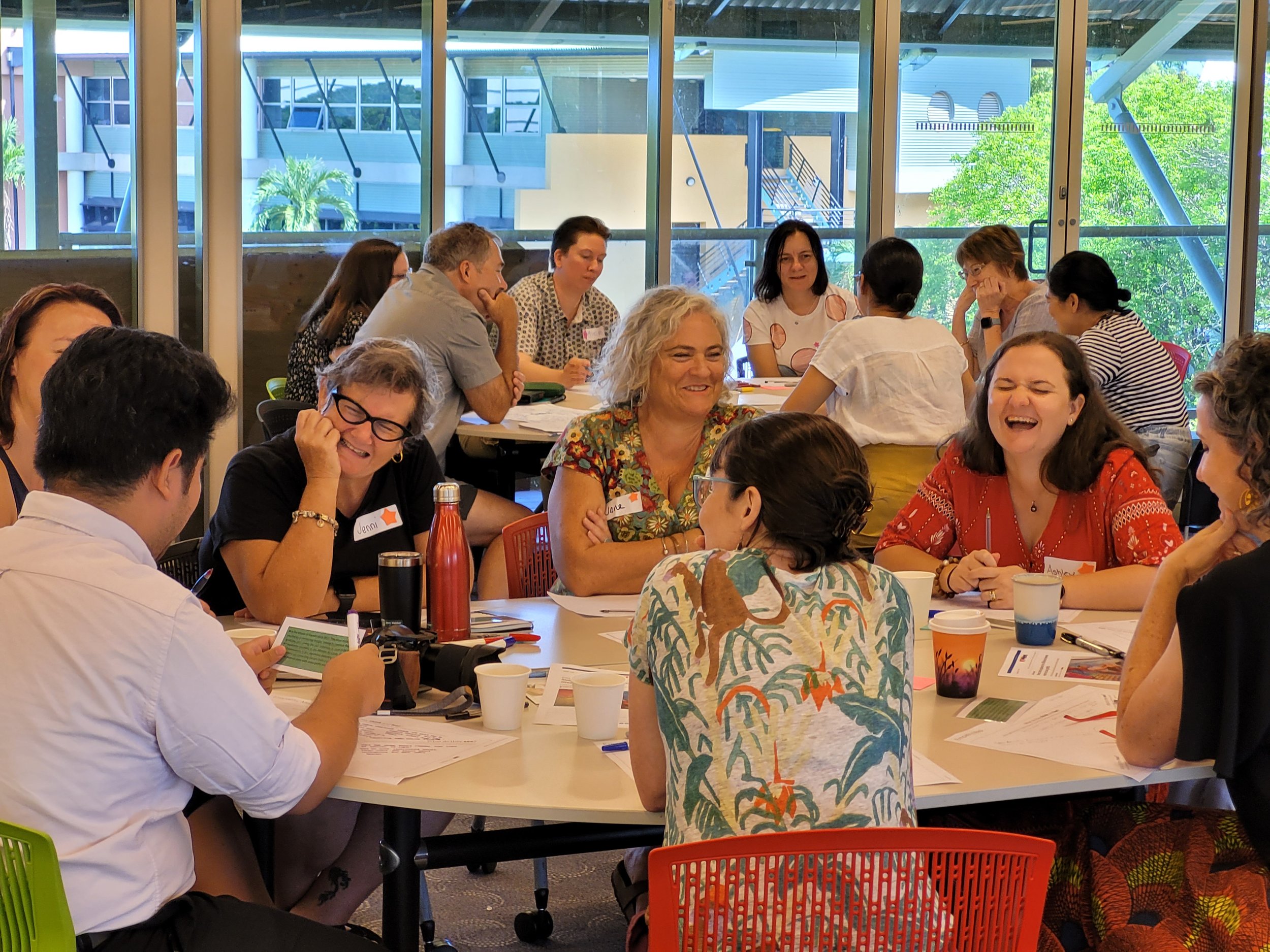

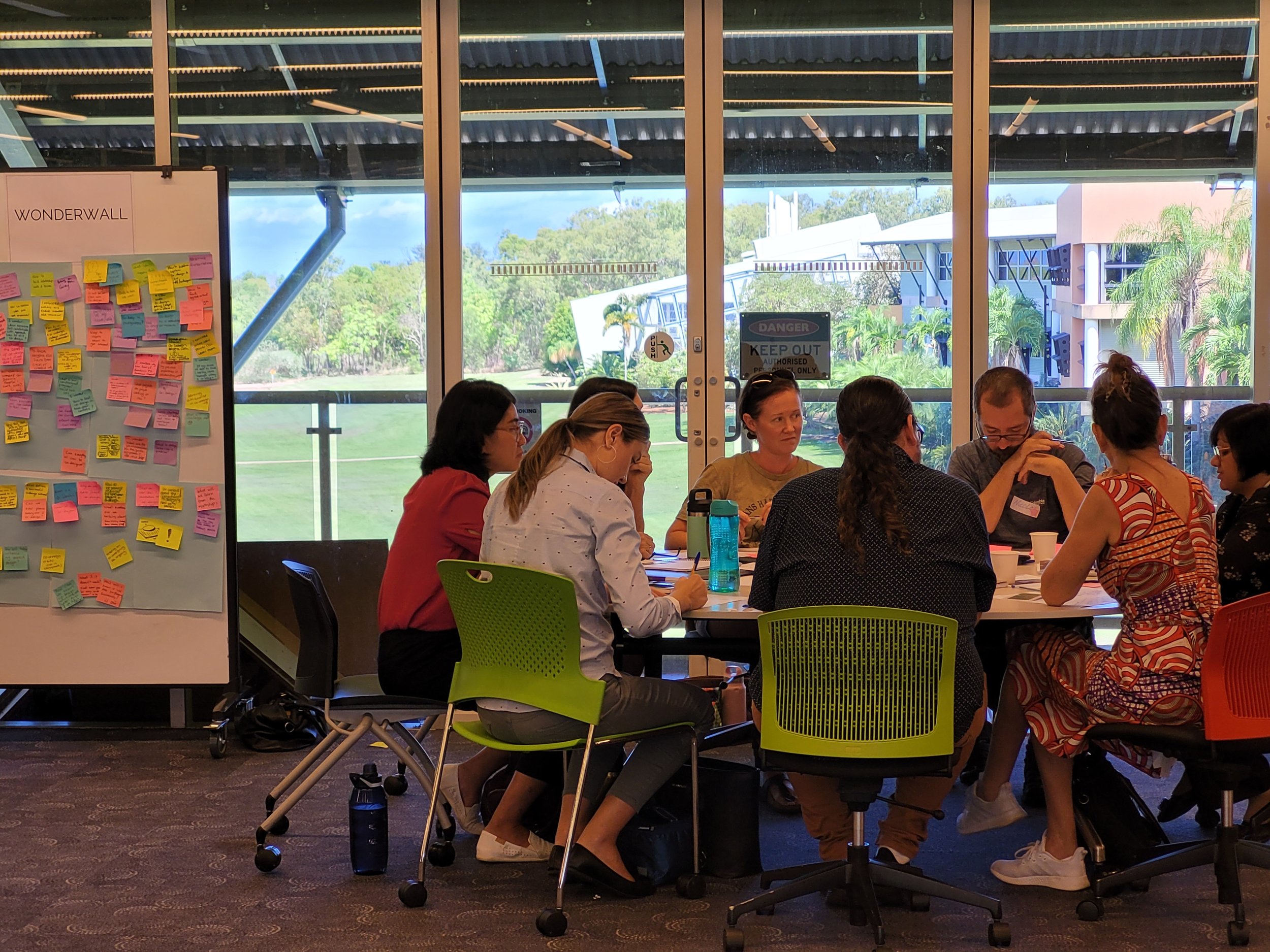
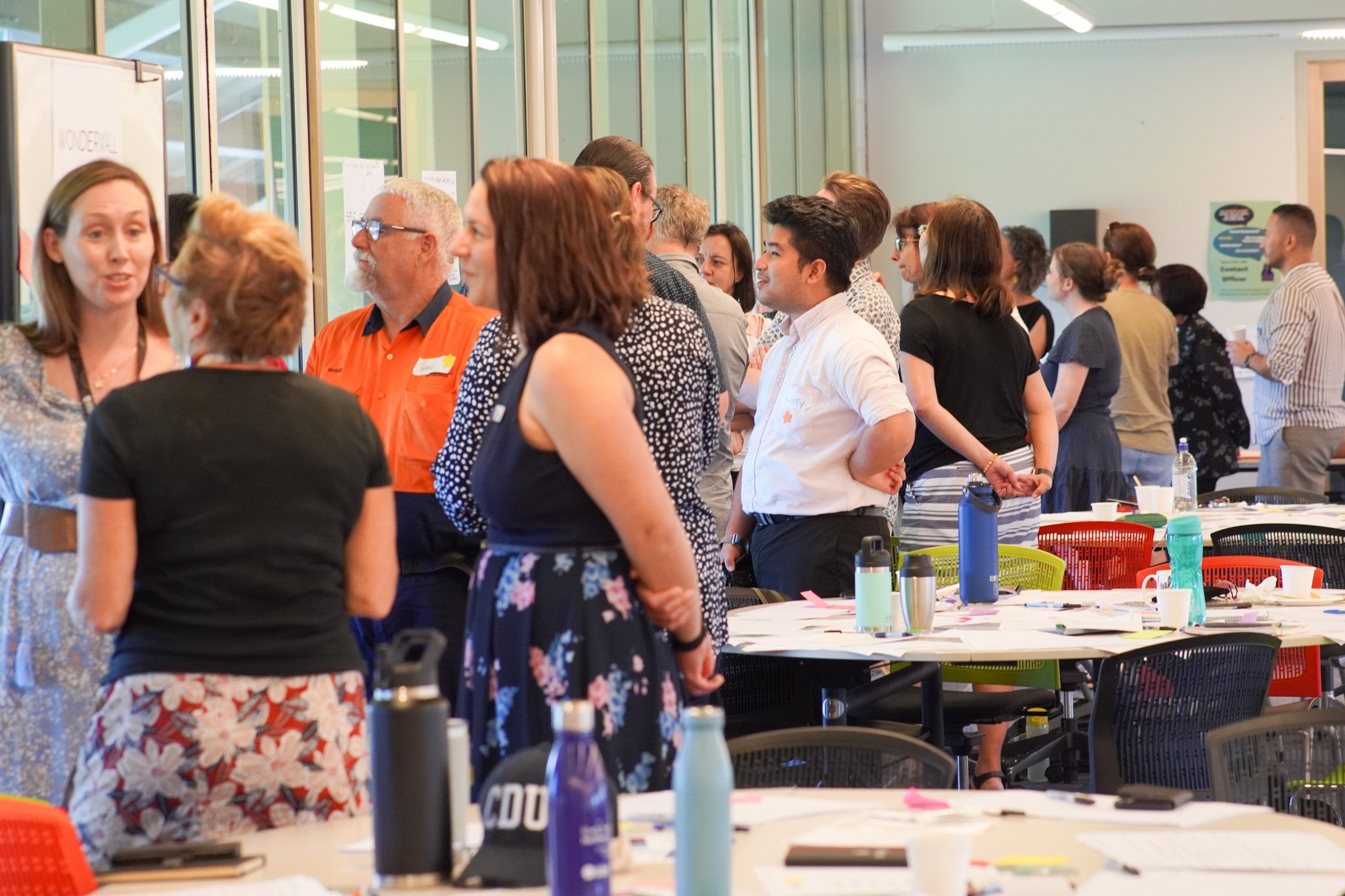
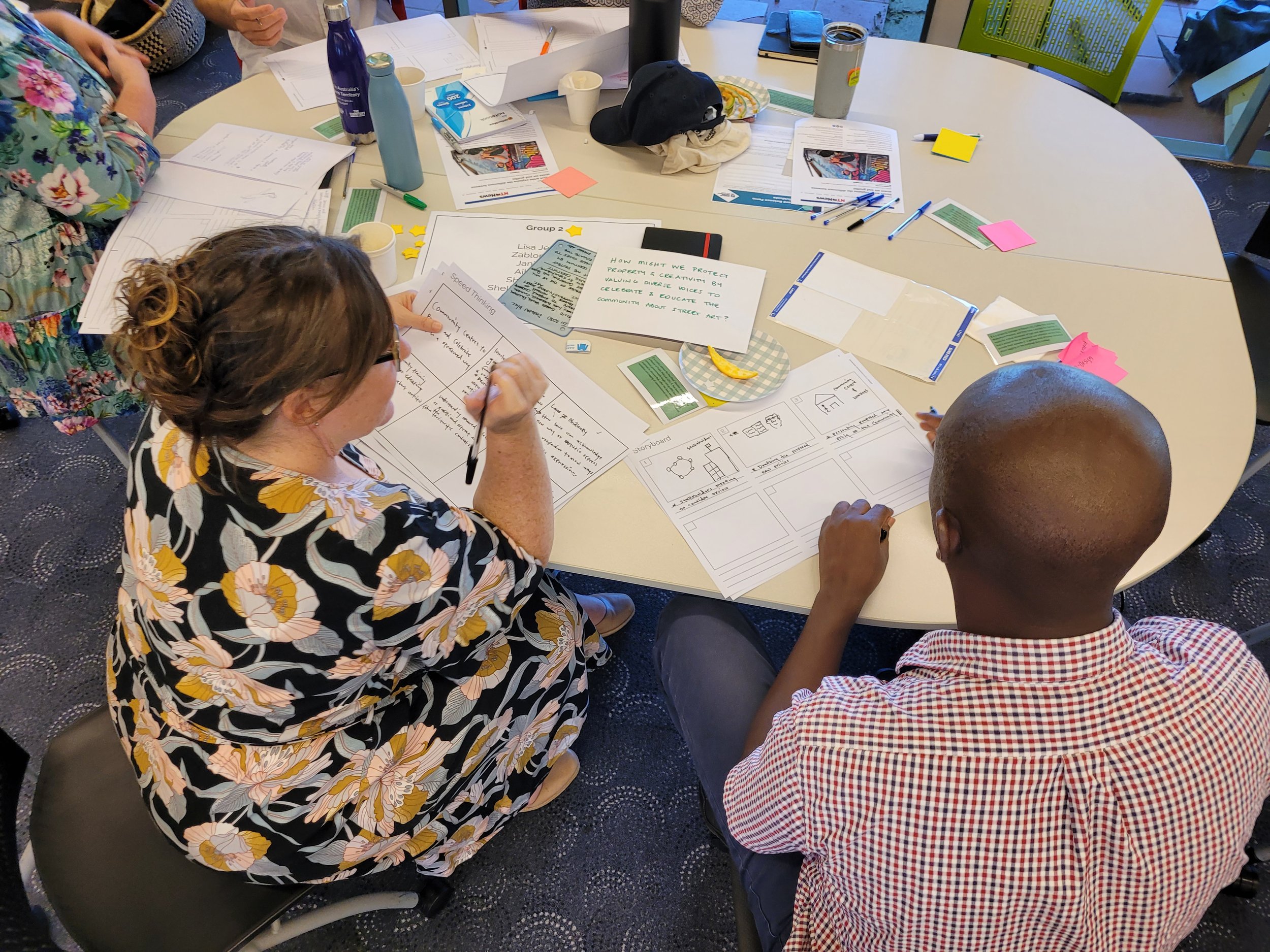
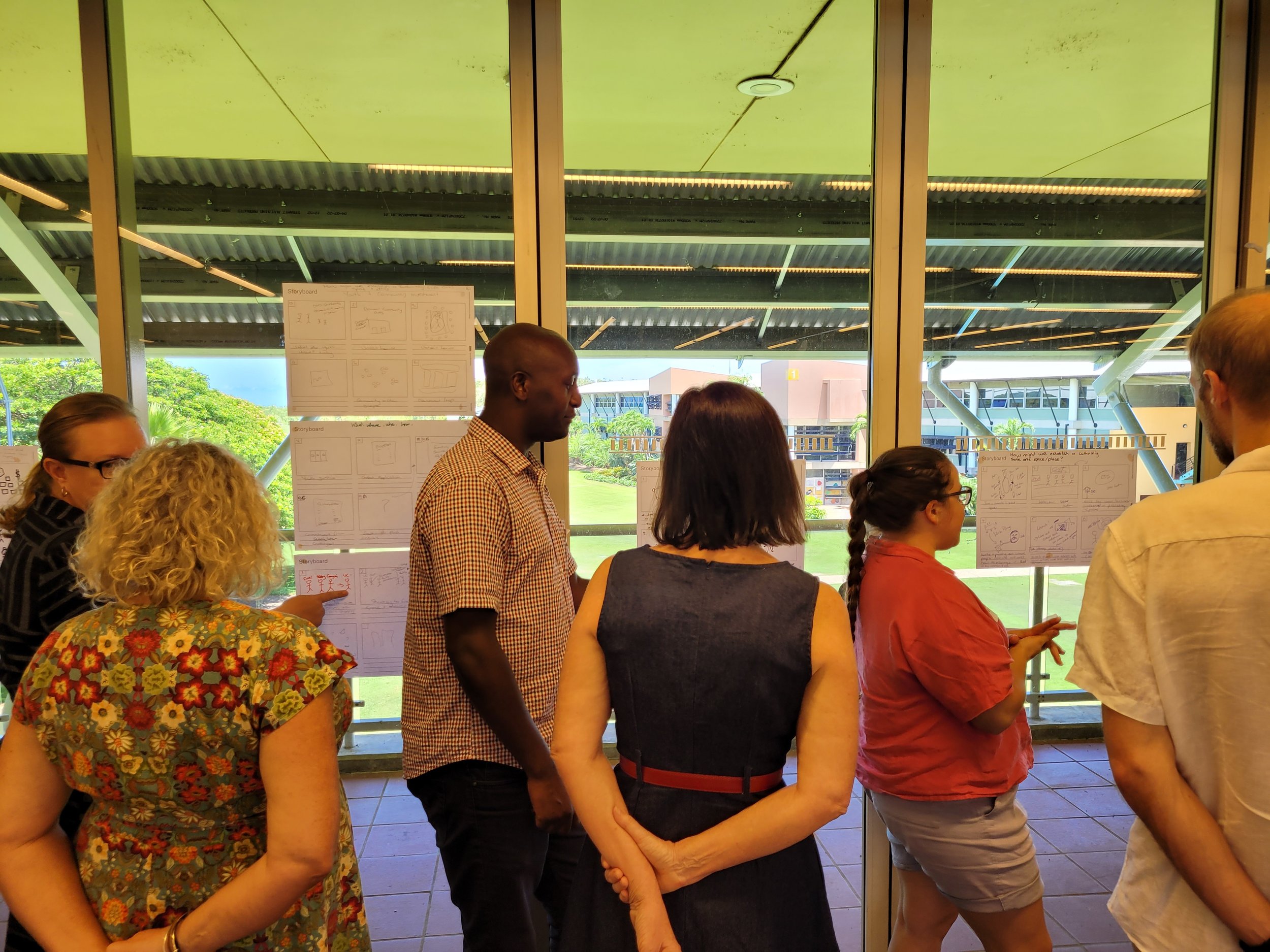
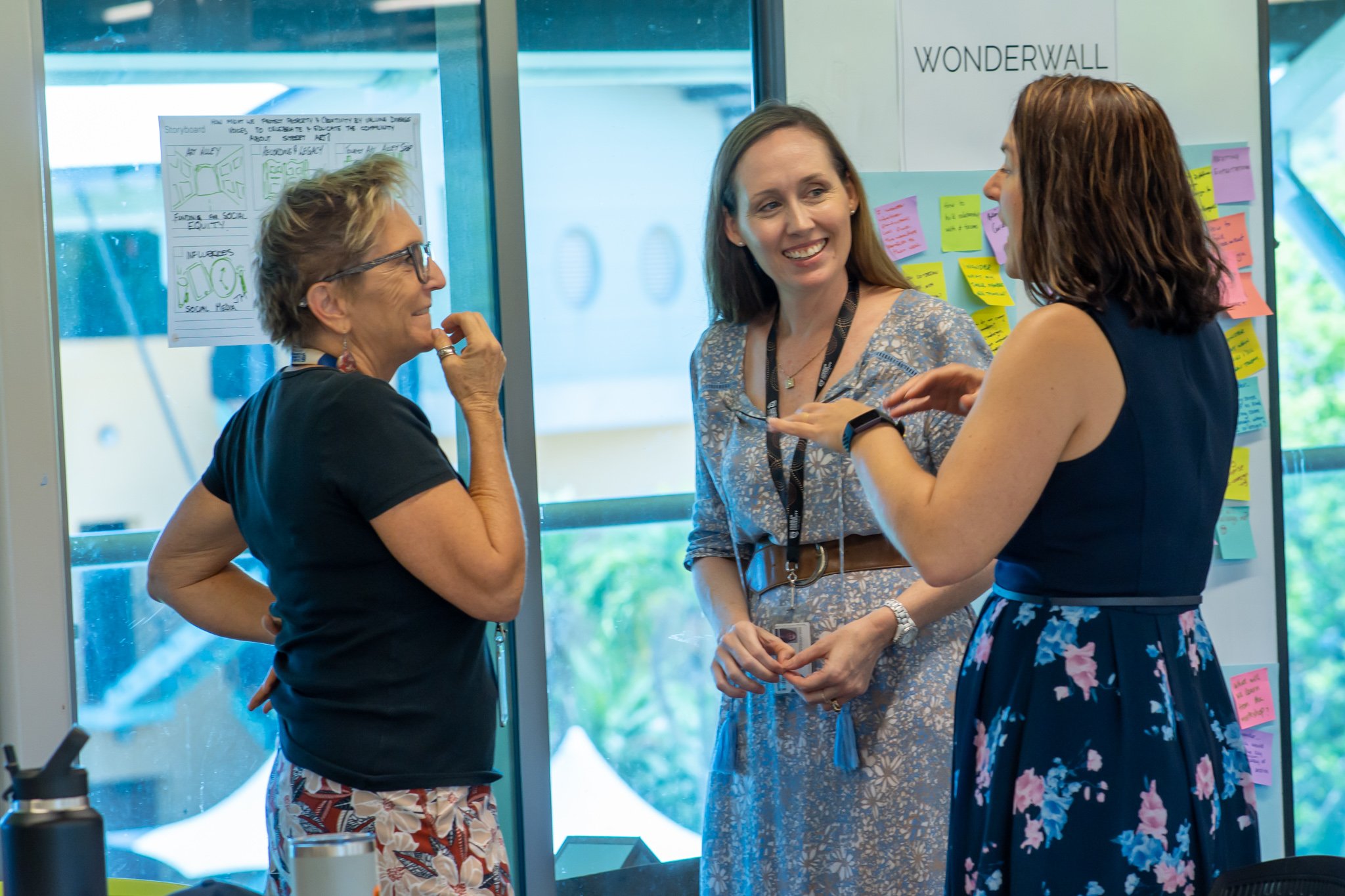

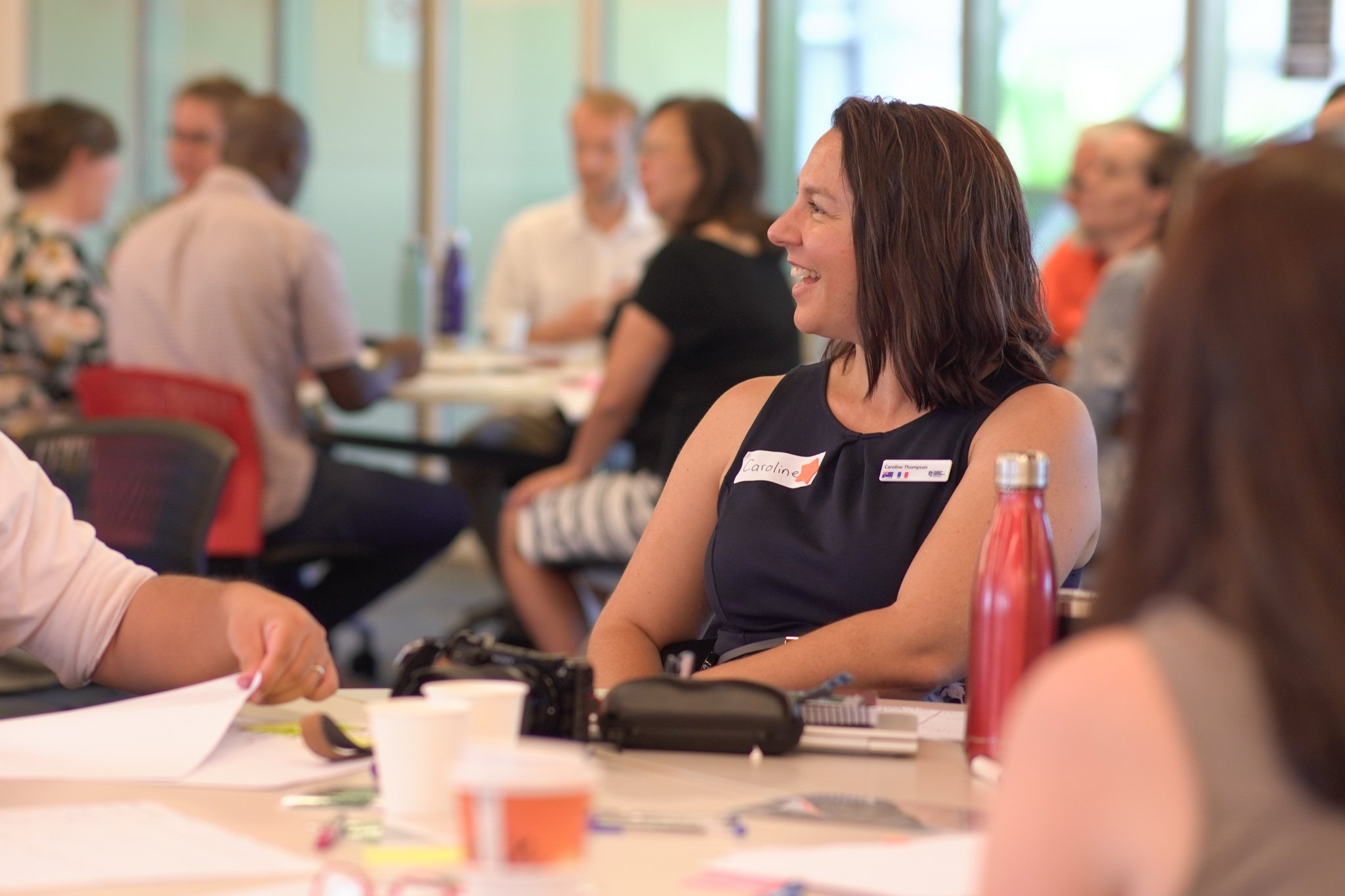
Co-design brings together diverse people and knowledge to achieve shared goals, in this case, to enhance teaching and learning. Building capability in co-design involves learning to use creative and participatory tools and principles to engage professionals and people with lived experience in response to complex problems. This multi-pronged program has engaged academic and professional staff in training workshops, coaching and mentoring sessions, and hands-on co-design projects to transform how staff develop educational experiences and environments.
Partnering to build co-design skillsets, mindsets and toolkits
Phase 1: Foundation building (2021)
A dedicated leadership team from Education Strategy first engaged me in 2021 to develop and implement a comprehensive professional learning program. The first phase engaged 18 professional staff and educators from the Education Strategy unit in an intensive four-month action learning series on Co-Design for Discovery, Sense-Making and Change-Making. We co-designed this foundation program with a Program Committee of 8 participating staff.
Phase 2: Scaling and skills development (2022)
Building on the foundational skills and concepts, we scaled the program to reach 50 participants from across the university through a customised Introduction to Co-Design for CDU workshop, co-facilitated with the Education Strategy leaders. This unique ‘meta-experience’ of learning co-design whilst experiencing it as participants proved particularly powerful in building both understanding and confidence.
Additional 2022 activities included:
A follow-up professional development workshop on Idea Generation and Testing in Co-Design
Co-Design Coaching Club for group coaching
Individual practice mentoring and project coaching
Participation in public online training courses
Phase 3: Embedding and culture change (2023-2025)
From 2022 onwards, we focused on providing targeted co-design coaching and project mentoring to improve the quality and impact of co-design practice across the University. This included supporting leaders to apply their learning to six new projects in 2022, demonstrating their understanding and commitment to building capability and institutional change.
Throughout the program, we continuously evaluated our activities. Training participants reported applying learnings in the workplace, in a variety of ways, including:
sharing knowledge and advocating for co-design within and beyond their departments;
recognising and initiating opportunities to apply co-design in their work; and
deepening relationships and enhanced collaboration on work that extended beyond co-design.
In 2024, we initiated a research project to evaluate outcomes and co-produce academic scholarship on building co-design capabilities and supporting culture change, culminating in a comprehensive evaluation using Most Significant Change methodology.
Empowering co-design leaders to drive systemic change
Our evaluation using Most Significant Change methodology revealed profound transformations occurring at personal, professional and organisational levels. Between 2021 and 2024, the program engaged approximately 68 participants across all phases, with 82% (56 participants) providing feedback on training, coaching and mentoring sessions, all of which was overwhelmingly positive.
Personal and professional transformation: The most significant changes occurred at the mindset level, with participants developing critical co-design mindsets including ‘embracing the grey’ (navigating uncertainty without rushing to judgement) and ‘practising empathy and valuing different perspectives’. Participants felt permission to work empathically and collaboratively, building confidence to work in alignment with their personal values. They applied co-design principles to transform real processes—for example, moving annual course reviews from compliance exercises to meaningful co-creation opportunities where educators felt genuine ownership.
Organisational culture change: The program created ripple effects extending well beyond initial participants. Staff from other areas began approaching program participants for help with co-designing projects, with co-design serving as a catalyst for breaking down silos and building communities. By 2022, participants had integrated their emerging skills into six new university projects, demonstrating the program’s role in building capability and driving institutional change.
Sustained impact and learning: Our evaluation revealed that building co-design capability follows non-linear arcs involving cycles of experimentation, reflection and adaptation. One particularly powerful transformation involved a participant with a scientific background who moved from valuing certainty to embracing ambiguity, becoming a resource for other departments and successfully transforming university processes. The evaluation showed that while mindset shifts were consistent across all activities, coaching and mentoring were particularly effective for developing professional and organisational-level changes.
Key success factors: Critical enablers included creating psychological safety for experimentation, investing in a small cohort of champions to model and disseminate practices, providing sustained engagement through diverse learning modalities, and documenting tangible examples of transformation. The program demonstrated clear progression from basic skill acquisition to participants becoming systemic change agents who could support others.
Scholarly contribution
This partnership has contributed to emerging literature on fostering co-design capabilities across diverse professional contexts, demonstrating how ‘co-design as a systemic practice’ can produce cultural change in large organisations. The evaluation findings highlight the importance of sustained, multi-modal approaches to capability building and provide practical insights for other institutions seeking to embed collaborative design approaches.
“Emma’s validation and support built confidence for us to step up and take greater risks with our practice...
Emma’s ability to create a safe space allows us to deeply commit to co-design with vulnerability to learn and apply new tools.”
- Laura Fairbrother and Amanda Martin, Co-Design Leaders, Education Strategy, CDU
“I appreciated your calm and steady hand steering the entire show – honestly being able to watch you dip into small moments happening online so far away and gently push us to consider things in a different or deeper way was astonishing. Wonderful facilitation (and without being over the top also a little/lot inspiring).”
- Sarah Morgan Broome, Quality Specialist, Education Strategy, CDU
“I had no idea how transformative it would be... Co-design has changed me personally, reshaping my approach to collaboration and challenging my assumptions about leadership and expertise.”
- Participant from Most Significant Change evaluation (2024)
